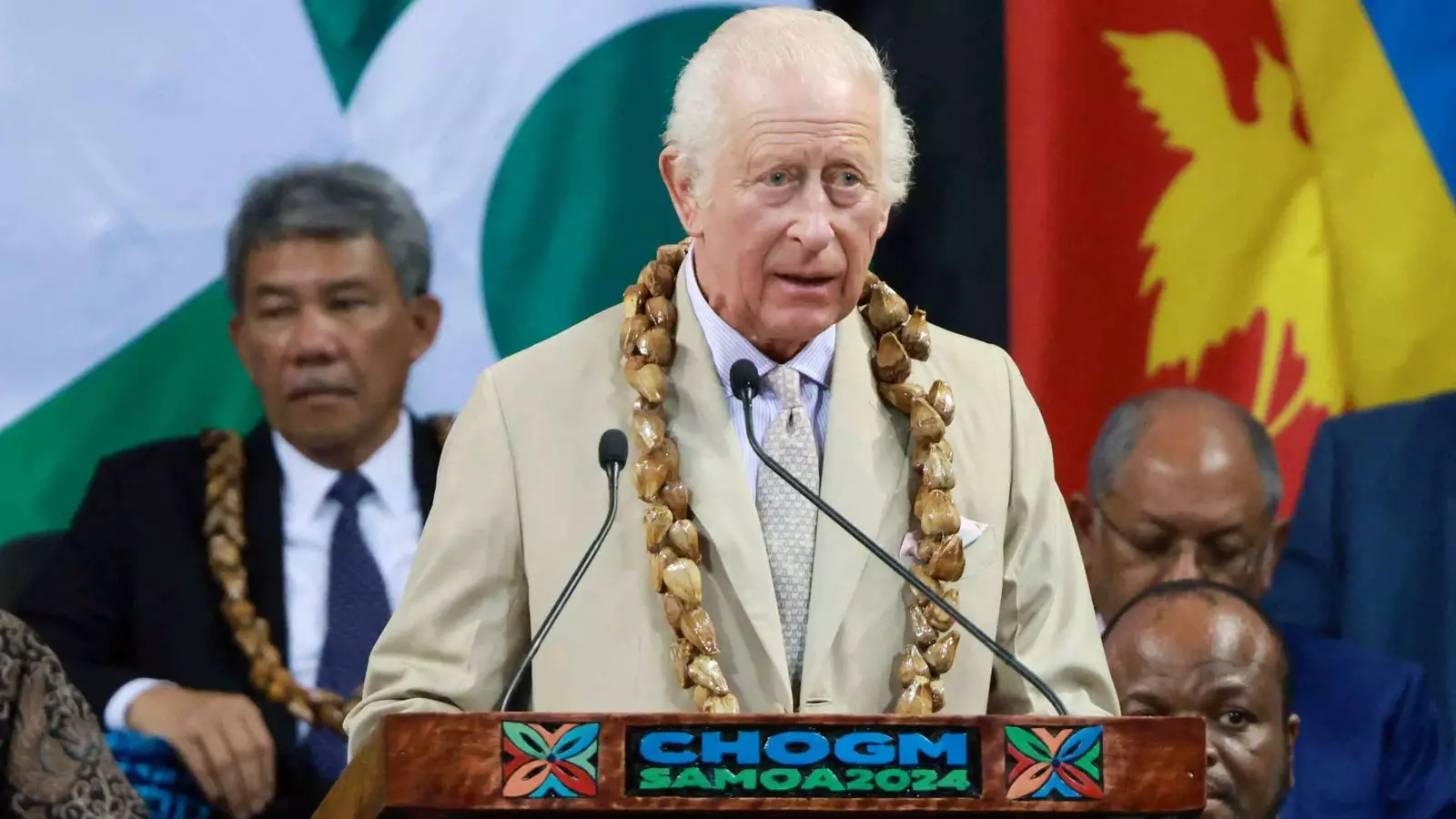The King’s recent address during the Commonwealth leaders’ summit has generated significant attention, primarily due to its importance as his inaugural engagement in this capacity. Held in Samoa, the conference was centered on the theme of “common future.” However, beneath this surface of unity, the Commonwealth is grappling with deep-rooted divisions. Notably, the lingering scars of slavery and calls for reparations have fueled heated debates and threaten the very fabric of this collective of nations.
In his speech, the King expressed an understanding of the historical injustices and acknowledged that the painful chapters of the past continue to reverberate into the present. He aptly noted the necessity of learning from history in order to pave the way for a more equitable future. While his remarks were crafted carefully to avoid direct references to “slavery” or “reparations,” they indicate a recognition of the work required to address systemic inequalities that persist to this day. This subtlety, however, appears to have left many disillusioned.
For numerous leaders from Caribbean and African nations, the call for a formal apology from those complicit in the historical transgressions has intensified. Figures like Eric Phillips, a prominent advocate representing the Caribbean, have voiced their discontent, suggesting that discussions of trade should only proceed when reparations are on the table. This sentiment highlights the discord surrounding the relevance and future of the Commonwealth as a unified entity.
Caught in an intricate political web, the King is ostensibly expected to maintain a position above the political fray. Buckingham Palace has articulated that he cannot comment on matters of reparations or deliver direct apologies without government approval. This argument is complicated by the royal family’s historical involvement in the slave trade, from which they greatly benefited. While the King has previously expressed personal sorrow over the implications of slavery and initiated research to understand his family’s ties to this dark history better, critics argue that such gestures fall woefully short of making amends.
The absence of concrete action or acknowledgment from Commonwealth leadership only exacerbates tensions among member states, casting doubt on the future trajectory of the Commonwealth. The contrasting expectations from nations seeking accountability and reparations versus the cautious steps taken by royal institutions illuminate the fractured state of these relationships.
Despite the weighty issues at hand, the King’s speech concluded on a hopeful note, urging collective reflection on past lessons and emphasizing the importance of national pride and collaboration for a harmonious future. This ending sentiment underscores the potential for growth and unity if there is willingness to confront uncomfortable truths.
As the Commonwealth continues to wrestle with its legacy, it finds itself at a crossroads. The depth of the issues at stake requires urgent attention and meaningful dialogue among leaders, with reparations and apologies at the forefront of discussions. Ultimately, the family’s history cannot be ignored; only through genuine acknowledgment and action can the Commonwealth hope to redefine its purpose and restore trust among its members. Failure to tackle these critical issues will likely result in further fragmentation, a fate no one wishes for this assembly of nations.



Leave a Reply